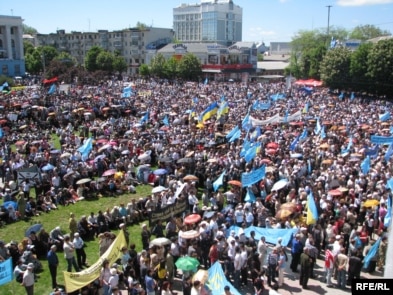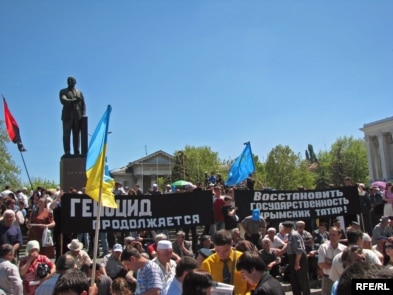Jun 25th 2009
From Economist.com
What would a politicised east European menu look like?
“What’s “Cutlet Carpathian Style?”, your columnist asked innocently in a restaurant in Budapest recently. “You’re halfway through eating it when the Ukrainians take it away and say the rest belongs to them,” came an instant quip in return. The rest of the world may have forgotten, but Hungarians still remember the time when a large chunk of what is now Ukraine (and a lot more besides) was part of their old imperial kingdom.
The encoding of menus is a fascinating byway in gastro-linguistics. Any mention of “Hawaiian” means that chunks of pineapple have been added to the dish. Similarly, “Provençale” signals tomatoes and black olives. “Napolitano” means with basil and mozzarella; “Niçoise” is anchovies and eggs, “Veneziana” means onions. More generally, “traditional” usually means indigestible or overcooked. “Organic” means it costs more.
But rarely if ever do the menu terms have any political meaning. London’s best restaurant for real English cooking, Wilton’s, serves a dessert called “Guards’ Pudding”, invented in the trenches of the first world war (ingredients include breadcrumbs and raspberry jam). The officers who survived the wartime mincing machine apparently longed for the dish in peacetime London. The French “Macedoine” salad could be the big exception: it is a mixed fruit salad that some say was named after the ethnic confusion in Macedonia 100 years ago. But serious scholars have not endorsed that theory.
So it is tempting to try to create a menu with east European historical overtones. The starter might be Ottoman salad. That would be lazily prepared and slovenly served, and crowned with the yellow part of a boiled egg (the Ottoman yolk). Its unlikely ingredients range from sharp Balkan paprikas to gelatinous Levantine sweetmeats. It would stay on the table for ages, and some guests would end up picking bits out in order to create their own dishes (Bulgarian crudités, perhaps). Random offenders would be hauled off to the kitchen to spend a lifetime washing dishes, Janissary style.
The Hapsburger Auflauf (stew: but Hungarians would call it a goulash) would be equally varied but rather more successful, with Czech dumplings nestling quite snugly next to wisps of sauerkraut and paprika.
Romanov rissoles would be raw (and bleeding), prepared with extraordinary incompetence and bashed about by a madman. But they would be delicious compared with “Steak a la Soviet” (often known colloquially as Lenin’s Revenge): this would be a revolting mixture of gristle and animal fodder, enough to keep you alive but wishing that you were dead.
Diners would hastily turn to the more appetising part of the menu. Prague Spring Rolls would be a temptingly modern variation on traditional Czech cuisine, half-baked yet cooked with delightful enthusiasm by a kitchen crew of idealistic youngsters and hard-bitten types who have embraced nouvelle cuisine. Sadly, a jackbooted waiter stamps them to smithereens before you have begun to enjoy them. You then spend the next 20 years cleaning the restaurant windows.
Diners are told that Baltic Surprise is off the menu forever on seemingly dubious health grounds. Old people insist that it used to be delicious, involving herring and fresh herbs, eaten at midsummer with a lot of beer and dancing. Even trying to order it brings the threat that you will be locked in the cellar for life. But diners who persist will find it served with a flourish, having been cooked secretly in the kitchen from a recipe bravely preserved in the attic. Conversely, Kasha Putina (Putin’s porridge) is not on the menu either, though something is clearly cooking. Russians maintain that they love it, but the neighbours find the smell a bit overpowering.





